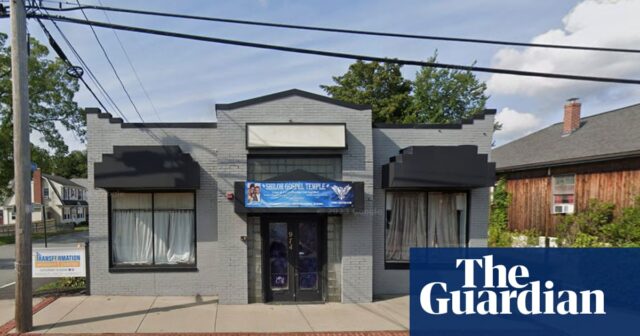A Rhode Island man is prepared to plead guilty on 7 January to lighting several fires just outside a predominantly Black church nearly a year earlier, federal court documents show.
Kevin Colantonio, 36, ignited the blazes around Shiloh Gospel Temple’s exterior in North Providence during the early morning of 11 February because of the “race, color, religion, national origin and/or ethnicity of the congregants there”, according to a plea agreement filed on 20 December. Investigators said most of the worshippers at the Pentecostal church, which has existed for about 35 years, are Black and African American.
Colantonio was charged with buying a pocket lighter as well as gasoline at a local convenience store and then setting several fires right outside Shiloh Gospel Temple. Though it was about 12.10am and Shiloh Gospel Temple was vacant at the time, the fires inflicted damage to the church property.
Investigators said the place of worship probably would have been razed had firefighters and police officers not responded as quickly as they did to reports of someone trying to start fires at the church. After authorities zeroed in on Colantonio as a suspect in the case, they searched his home and seized notebooks as well as writings containing the phrases “burn churches down to the ground”, “hunt them down” and “gun everyone down who isn’t white”, among others, Rhode Island’s US attorney Zachary Cunha later said.
Federal officials ultimately charged Colantonio with obstruction of the free exercise of religious beliefs; malicious damage by means of fire and two counts of assaulting a federal officer. The assault counts stem from allegations that Colantonio concocted a mixture of feces and urine that he threw at two corrections officers working in the lockup where he was being detained in March pending the outcome of his case.
Colantonio faces a sentence of at least five years in prison after a change of plea hearing tentatively scheduled for 7 January. According to court filings that he signed, Colantonio could get a maximum sentence of 56 years in prison – but defendants who plead guilty before forcing prosecutors to try them rarely are given the harshest punishment possible.
He could also be fined up to $1m and given three years of supervised release from prison, said the court filings, which confirmed Colantonio’s “intention to enter a plea of guilty”.
Colantonio’s attorney, Kara Manosh, could not immediately be reached for comment. The Associated Press reported that Manosh had previously declined comment to the outlet.
after newsletter promotion
Associated Press contributed reporting






